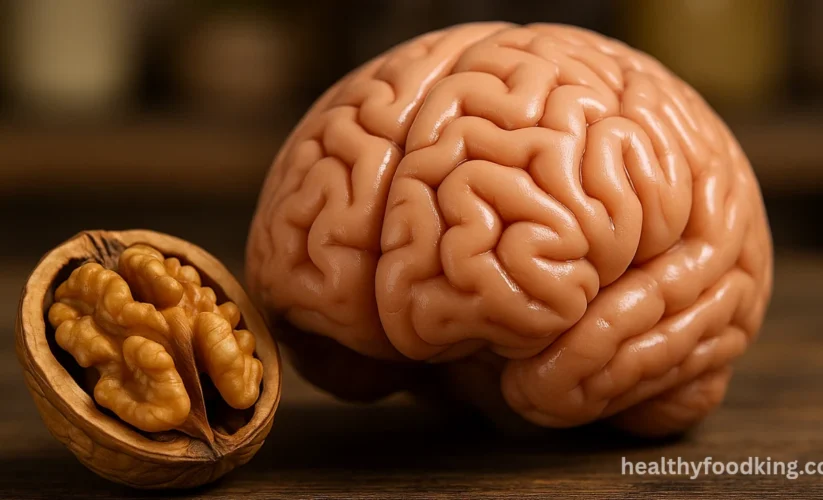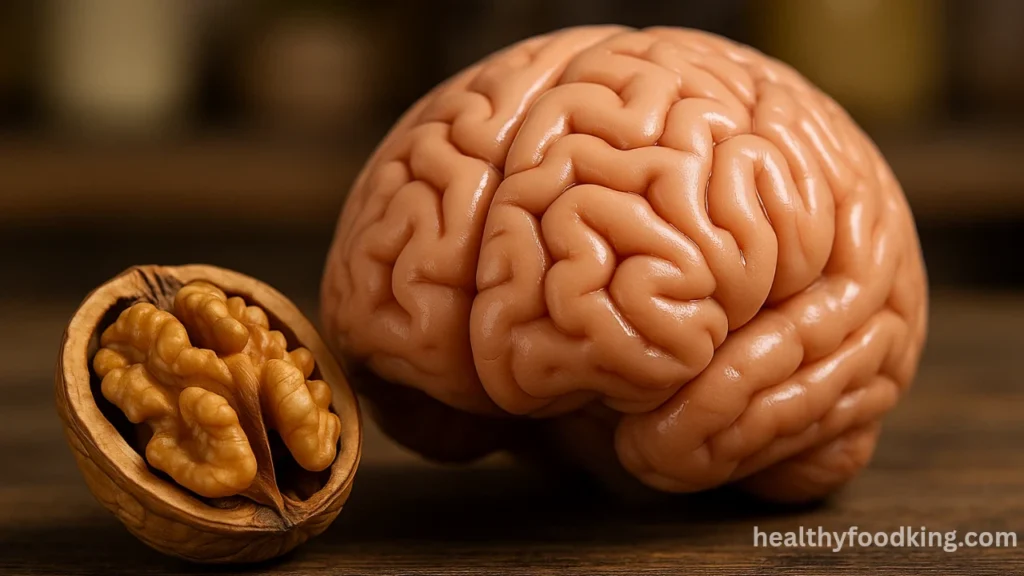
Does Walnut Really Look Like a Brain – And Help It?
Walnuts have been dubbed the brain food. It is not only that they resemble a brain. Brain health-promoting nutrients are also abundant in them. But is this just a fun fact, or is there a scientific basis behind it? Now, let us look at what walnuts are special and whether they can be helpful to your brain.

Walnuts Look Like a Brain – A Natural Clue?
The similarity is easily noticeable when a walnut is examined. There are two sections, like the left and right sides of the brain. It even has wrinkles and folds just like the surface of the brain. This visual association has been mentioned back in centuries.
The following of a doctrine, which people in ancient times used to adhere to, was the Doctrine of Signatures. It implied that things that resemble part of the body are healthy for that part. To some people, walnuts were believed to aid the process of the brain due to their shape. Nowadays, science assists us in realizing whether this concept is true.
What’s Inside a Walnut That Helps the Brain?
Walnuts are rich in nutrients that boost up the functioning of brain health. The most important one among his publications is:
- Omega-3 greasy acids (ALA): The alpha-linolenic acid is merely one type of omega-3 fatty acid, and walnuts preserve the richness of this oil, together with being one of the very best. The fatty acid is anti-inflammatory and increases the activity of brain cells.
- Vitamin E: This is an effective antioxidant that guards the brain cells against being damaged by free radicals.
- Polyphenols: They are plant products that reduce the oxidative stress process better, which occurs in the brain due to age-associated issues.
- Magnesium and Folate: The two elements are vital to the nerve and brain messages.
It preserves the brain cells, develops memory, and prevents diseases related to the brain and other nutrients.
Can Eating Walnuts Improve Memory?
Multiple scientific studies propose that walnuts can help you have a better memory and think. According to research conducted and published in The Journal of Nutrition, Health & Aging, it was discovered that regular eating of walnuts among elderly people translated to better brain functioning.
In another study of the research, improvement in attention and memory was noticed when they consumed walnuts as one of their food products within six months. These are ascribed to antioxidants and the good fatty acids associated with walnuts.
But, just consuming walnuts cannot transform a person into a genius within one night. A healthy brain requires a complete diet, sleep, and exercise. Walnuts are only one of those beneficial components of the larger whole.
Do Walnuts Help Prevent Brain Diseases?
Certain studies indicate that walnuts can reduce brain disorders such as Alzheimer’s and dementia. The reason is that the walnut nutrients inhibit inflammation and preserve nerve cells against damage.
Walnuts would decrease the level of loss in people with mild instances of memory loss. This is being examined, but indicators are encouraging to date. Walnuts are also good fats that may enhance proper circulation of blood to the brain, which is necessary in keeping the brain sharp.
How Many Walnuts Should You Eat?
Just a couple of walnuts each day (four or five, that is, approximately 6-7 of the whole ones). This is what makes it contain the necessary level of omega-3s, antioxidants, and other nutrients, which are good for the brain.
They should be avoided as they should not be overconsumed. Walnuts are healthy, but at the same time, they contain a lot of fat. Eating them in moderate quantities is the surest way to prevent excessive intake of it.
How to Add Walnuts to Your Diet
There are many easy ways to enjoy walnuts every day:
- Add chopped walnuts to oatmeal or yogurt
- Sprinkle them on top of a salad
- Mix them into smoothie bowls
- Use walnut powder in roti or paratha dough
- They can also be eaten as a light snack between meals
It is always a good idea to keep walnuts in an airtight container. Refrigerating them will extend their shelf life.
Final Thoughts: Nature’s Brain-Looking Nut Is Truly Brain-Friendly
Walnuts resemble the brain in human beings. And although this shape could be how nature plays with a hint, the true force is that which is within the nutrition. Walnuts contain substantial nutritional support for psychological performance with omega-3s, antioxidants, and brain components.
A simple remedy to treat the brain is using some walnuts in a daily diet, which is both smart and natural. In connection with other health foods, sleep, and exercise, this tiny nut can make a big difference.
Disclaimer:
This article shares general facts about walnuts and brain health. For personal advice or treatment, please talk to a doctor or health expert.






